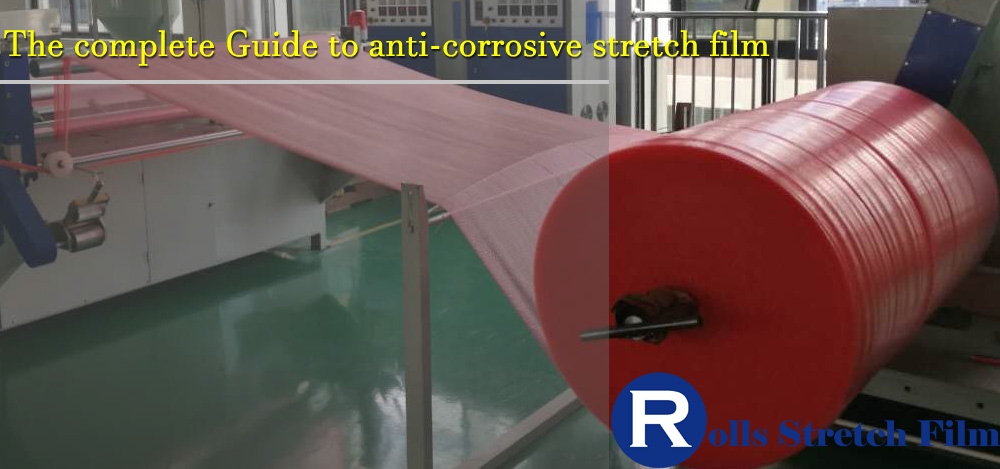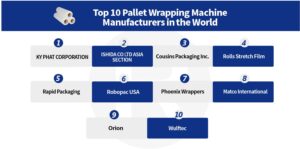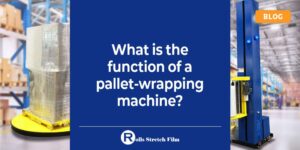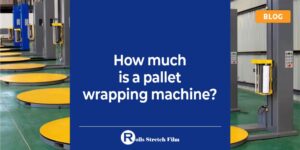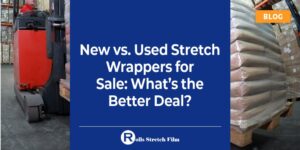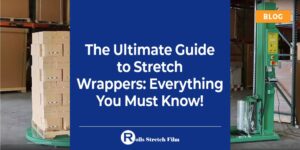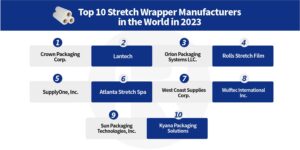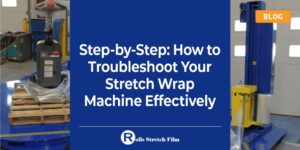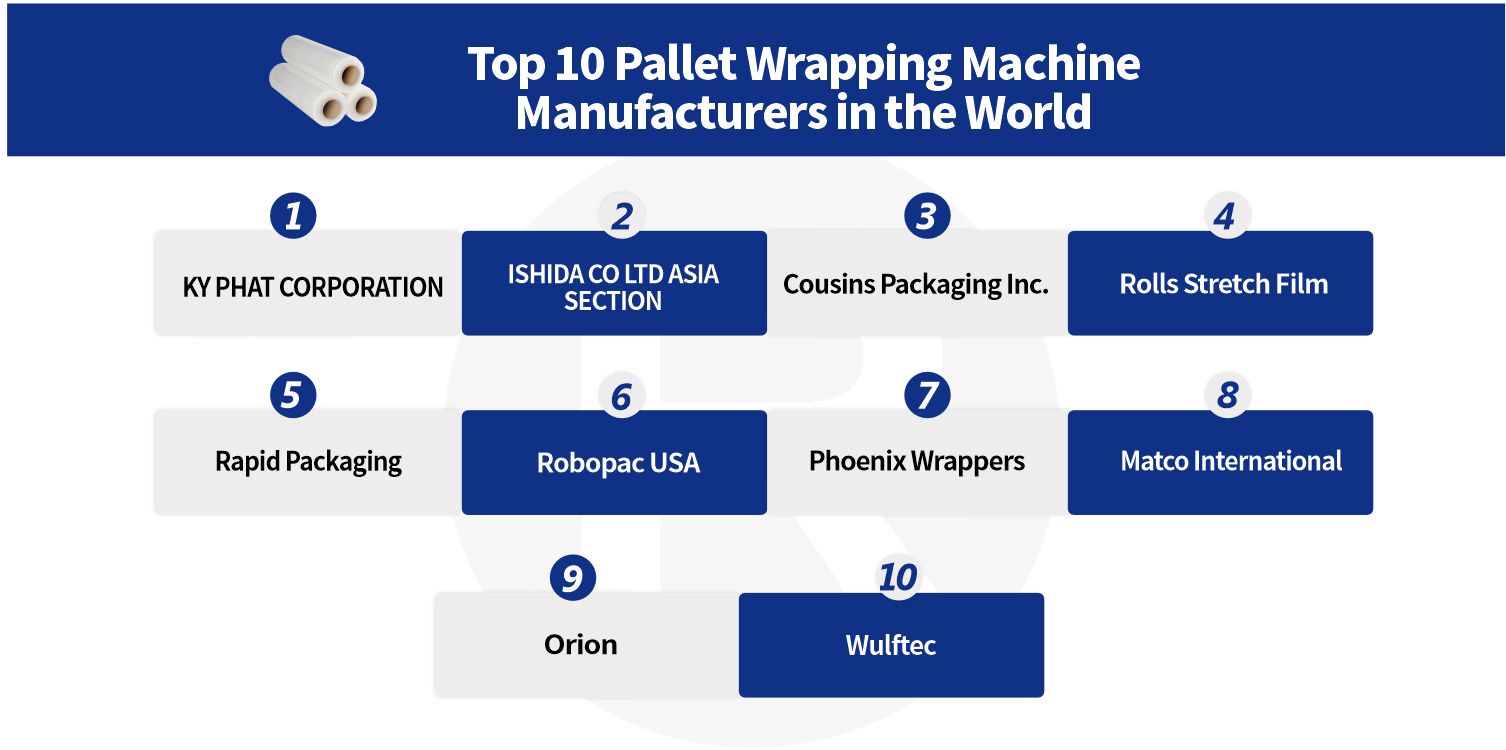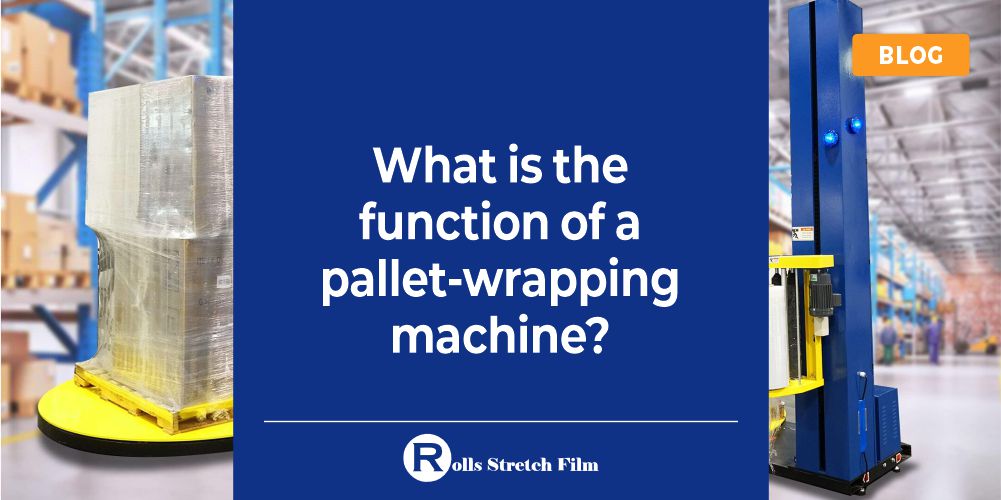Don’t let corrosion ruin your goods! This guide to anti-corrosive stretch film will help you protect your cargo from rust and other forms of corrosion with the right type of stretch wrap. Keep your goods safe and secure with this comprehensive guide!
Regular inspection of stretch film is essential to maintaining an effective anti-corrosive barrier. Inspect the film for tearing, punctures, holes, and other signs of damage that could potentially lead to corrosion. If any damage is found, replace the film immediately to ensure the protection of your goods.
This guide provides practical advice on selecting, using, and maintaining stretch wrap for corrosion protection. Continue reading to know more!
Definition of anti-corrosive stretch film
Anti-corrosive stretch film is a specialized type of specialty stretch wrap that is used to protect the metal from oxidation and corrosion. It is made from polyethylene or polypropylene and is treated with an anti-corrosive agent to provide extra protection.
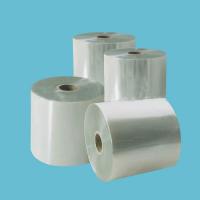
It is often used to wrap and protect metal items during transport and storage. It is a great solution for protecting metal from the elements, as it is strong and durable, and can be easily applied. It is also an affordable option for protecting metal from corrosion and oxidation.
Importance of using anti-corrosive stretch film
The use of anti-corrosive stretch film is essential in protecting products from rust and corrosion. It is important to protect items from the elements, as well as from external factors such as humidity, dust, and other corrosive agents. Anti-corrosive VCI stretch wrap is designed to provide a barrier between the product and the environment and can help protect against rust and corrosion.
By using anti-corrosive hand stretch wrap, businesses can extend the life of products and reduce the cost of repairs. This can help to save money and preserve valuable products, making it an essential tool for any business.

Properties of anti-corrosive stretch film
Materials used in its production
Polyethylene
Polyethylene is a thermoplastic polymer used in the production of anti-corrosive stretch film. Its low cost, chemical and moisture resistance, and high tensile strength make it an ideal material for VCI stretch wrap. It also has excellent flexibility, making it easy to stretch and wrap around objects. Its strong bond with other materials makes it great for covering and protecting surfaces from corrosion.
Polypropylene
Polypropylene is a lightweight, non-toxic plastic that resists corrosion, moisture, and chemicals. It is strong and flexible, making it an excellent choice for use in anti-corrosive VCI stretch wrap production.
Carbon Black
Carbon black is used in anti-corrosive stretch film production to increase its UV resistance, heat resistance, and strength. It also helps to reduce the permeability of oxygen and water vapor.
Oxidation Inhibitors
Oxidation inhibitors are used to reduce corrosion by preventing oxidation of the film, thereby preserving its physical and chemical properties. They include antioxidants, corrosion inhibitors, and UV absorbers.
UV Stabilizers
UV Stabilizers are used to protect the film from degradation due to UV radiation. They also help to improve the mechanical, thermal, and optical properties of the film, and make it resistant to UV light and other environmental conditions.
Slip Agents
Slip agents help the anti-corrosive VCI stretch films to slip over surfaces with ease and prevent sticking. They also reduce friction and improve the clarity, tear-resistance, and strength of the film.
Processing Aids
Processing aids are added to enhance the processability & properties of anti-corrosive VCI stretch film. These aids include lubricants, stabilizers, flow modifiers, & other additives to improve performance.
Antistatic Agents
Antistatic agents are used to reducing the static charge buildup on the surface of the anti-corrosive stretch wraps, preventing dust and dirt contamination. They also help reduce the occurrence of spark discharges and static cling in its breaking point.
Anti-block Agents
Anti-block agents are used to reducing the amount of film-to-film adhesion, allowing the film to be stretched and released easily. They include silicones, waxes, and mineral oils.
Plasticizers
Plasticizers are used to improve the flexibility, durability, and stretchability of the anti-corrosive pre stretched wrap. They are added to enhance the properties of the film, such as its tensile strength, elongation, and tear resistance.
Antistatic Agents
Antistatic Agents reduce the surface tension of the film and improve the cling properties of the film. They also help to repel dust, dirt, and other contaminants, resulting in a cleaner, smoother and longer lasting product.
Color Concentrates
Color Concentrates are additives used to impart color to the plastic film. They are highly concentrated liquids and can be blended with the film’s resin to produce a wide range of vibrant colors. They are non-toxic, UV stable, and have excellent dispersion properties.
Lubricants
Lubricants used in anti-corrosive shrink wrap production provide superior lubrication, corrosion resistance, and resistance to temperature variations. They also help reduce surface tension and improve adhesion to the substrate.
Antifog Agents
Antifog agents are used in the production of anti-corrosive stretch wrap to reduce the risk of fogging on the blown film. These agents can be oil-based or water-based and are designed to prevent water droplets from forming on the surface of the stretch wrap.
Nucleating Agents
Nucleating agents are additives used to enhance the clarity and strength of the anti-corrosive stretch wrap machine. They help improve the physical properties of the blown films such as tensile strength, tear resistance, and transparency.
Antioxidants
Antioxidants are used to protect the blown films from sunlight, ultraviolet radiation, and other environmental sources. They also help to maintain the physical properties of the cast films, such as tensile strength, elongation and tear resistance.
Tie Layers
Tie layers are used to bond multiple layers of anti-corrosive cast stretch film to create a single homogeneous blown film. They are typically composed of adhesive resins or copolymer materials. They provide excellent adhesion between the layers and excellent barrier properties to protect the product.
How it protects against corrosion
Anti-corrosive stretch film is made from polyethylene and is coated with an anti-corrosive compound to protect against rust and corrosion. The film is UV-resistant, and waterproof and also provides a layer of protection against dust, dirt and moisture.

Applications of anti-corrosive stretch film
Metal
Anti-corrosive stretch film protects metal components from moisture, dust, UV radiation, and other environmental elements that cause corrosion. It also helps to preserve the surface condition of metals.
Automotive
Anti-corrosive cast stretch film is used in the automotive industry to protect car parts from corrosion, dust, and moisture during shipping and storage. It can also provide extra protection from UV rays and extreme temperatures.
Engineering
It is used to protect metal equipment and machinery from corrosion, moisture, and dust. It is used to extend the life of the machinery and reduce maintenance costs. It also helps to maintain product quality and reduce machine downtime.
Pumps
Anti-corrosive stretch film can be used to protect pumps from dust, moisture, and corrosive elements, thereby extending the life of the pump. It can also be used to secure pump components during transportation.
Electrical
Anti-corrosive stretch films are used in electrical appliances to protect them from moisture, dust, and other corrosive elements. It helps to extend the life of electrical appliances and also ensures safe storage and transport.
Defense
Anti-corrosive stretch film is used to protect weapons and defense equipment from corrosion and other environmental factors. It also provides superior UV protection, moisture resistance, and tensile strength.
Advantages of using anti-corrosive stretch film
Cost savings from reduced corrosion
The anti-corrosive stretch film prevents the corrosion of metal items and helps extend their life, leading to reduced replacement costs and improved efficiency. It provides a barrier against moisture and other corrosive elements, extending the life of products. It also prevents rusting and staining, as well as protects against scratches and other damage. It can reduce the need for costly repairs or replacements, resulting in significant cost savings.
Increased product lifespan
The anti-corrosive stretch film provides a barrier between the product and corrosive elements, such as moisture and oxygen. This prevents rusting corrosion and other forms of damage that can significantly reduce the lifespan of a product. The film also helps to protect against UV damage and other environmental factors, further extending the life of the product.
Improved product quality
Anti-corrosive stretch film can be used to protect products from moisture, dust, and other contaminants that can cause corrosion. This helps to improve product quality by providing a longer shelf life and preventing damage from corrosion. Additionally, the anti-corrosive stretch film helps to reduce production costs by preventing the need for extra protective packaging and reducing waste.
Conclusion
This guide has been a great resource for anyone looking to learn more about the use of stretch film in industrial and commercial applications. It has provided detailed information on the types of film available, factors to consider when choosing the right product, and best practices for proper use. With this guide, you can be confident that you are making a wise choice when it comes to preventing corrosion.

